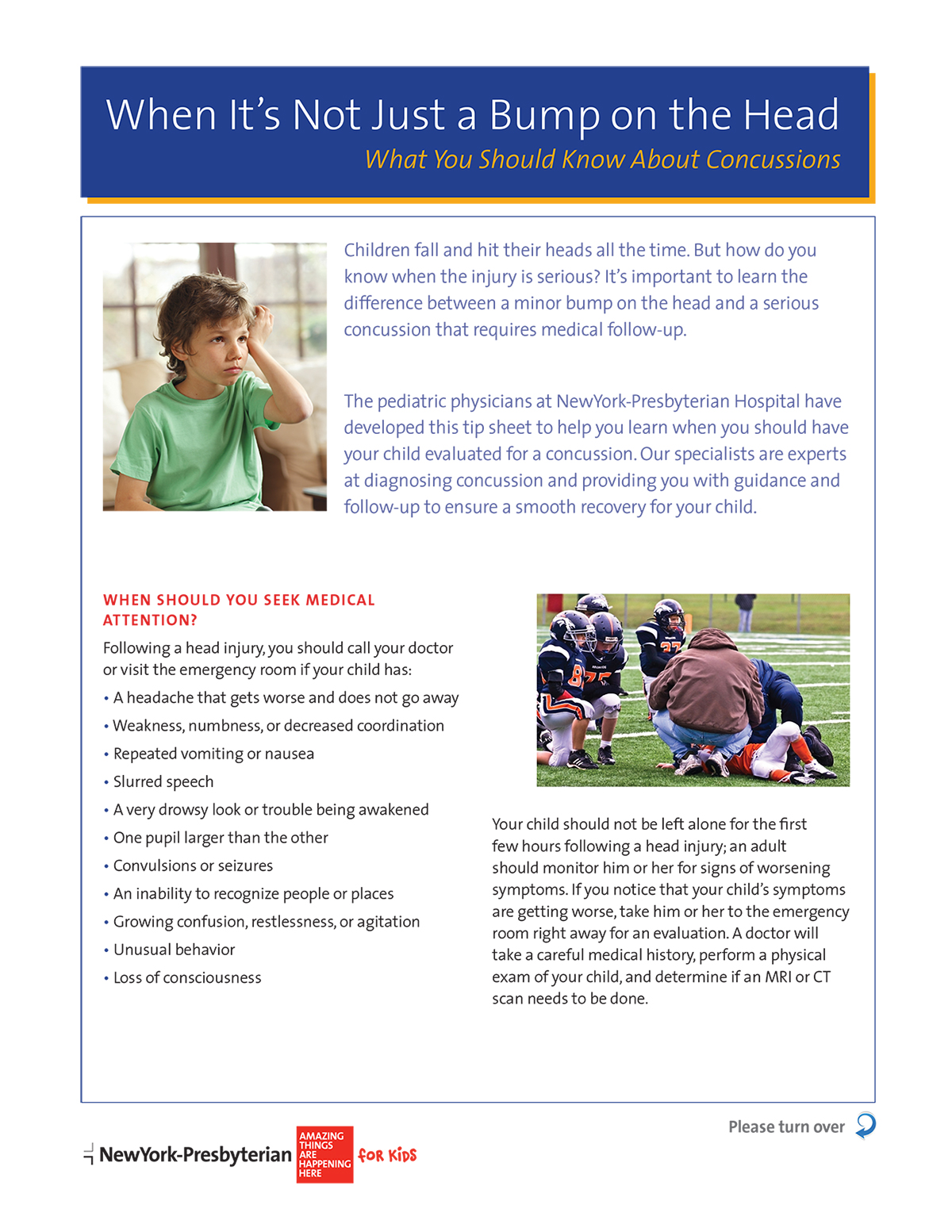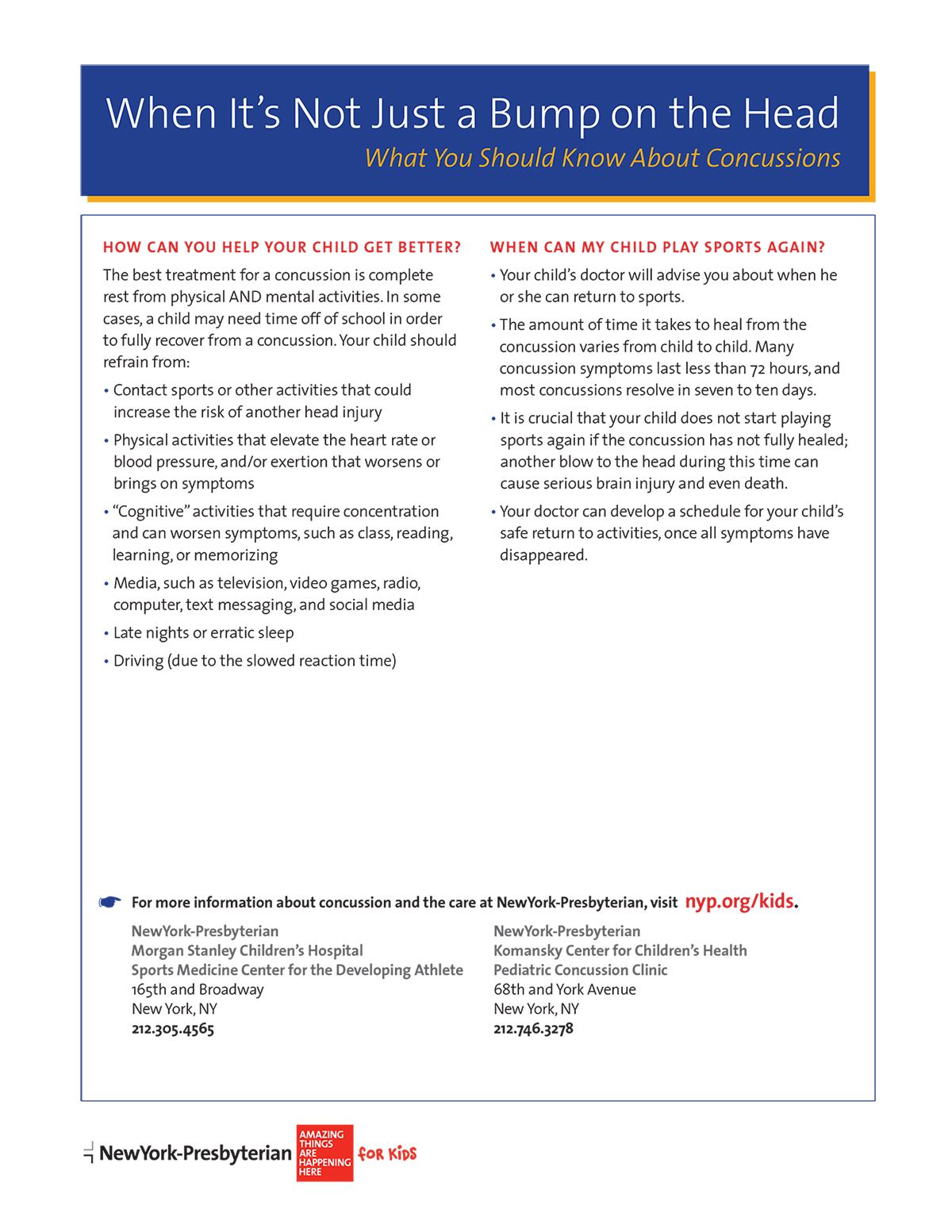When It's Not Just a Bump on the Head
What You Should Know About Concussions
Children fall and hit their heads all the time. But how do you know when the injury is serious? It’s important to learn the difference between a minor bump on the head and a serious concussion that requires medical follow-up.
The pediatric physicians at NewYork-Presbyterian Hospital have developed this tip sheet to help you learn when you should have your child evaluated for a concussion. Our specialists are experts at diagnosing concussion and providing you with guidance and follow-up to ensure a smooth recovery for your child.
When Should You Seek Medical Attention?
Following a head injury, you should call your doctor or visit the emergency room if your child has:
- A headache that gets worse and does not go away
- Weakness, numbness, or decreased coordination
- Repeated vomiting or nausea
- Slurred speech
- A very drowsy look or trouble being awakened
- One pupil larger than the other
- Convulsions or seizures
- An inability to recognize people or places
- Growing confusion, restlessness, or agitation
- Unusual behavior
- Loss of consciousness
Your child should not be left alone for the first few hours following a head injury; an adult should monitor him or her for signs of worsening symptoms. If you notice that your child's symptoms are getting worse, take him or her to the emergency room right away for an evaluation. A doctor will take a careful medical history, perform a physical exam of your child, and determine if an MRI or CT scan needs to be done.
How Can You Help Your Child Get Better?
The best treatment for a concussion is complete rest from physical AND mental activities. In some cases, a child may need time off of school in order to fully recover from a concussion. Your child should refrain from:
- Contact sports or other activities that could increase the risk of another head injury
- Physical activities that elevate the heart rate or blood pressure, and/or exertion that worsens or brings on symptoms
- “Cognitive” activities that require concentration and can worsen symptoms, such as class, reading, learning, or memorizing
- Media, such as television, video games, radio, computer, text messaging, and social media
- Late nights or erratic sleep
- Driving (due to the slowed reaction time)
When Can My Child Play Sports Again?
- Your child’s doctor will advise you about when he or she can return to sports.
- The amount of time it takes to heal from the concussion varies from child to child. Many concussion symptoms last less than 72 hours, and most concussions resolve in seven to ten days.
- It is crucial that your child does not start playing sports again if the concussion has not fully healed; another blow to the head during this time can cause serious brain injury and even death.
- Your doctor can develop a schedule for your child’s safe return to activities, once all symptoms have disappeared.
For more information about concussion and the care at NewYork-Presbyterian, visit nyp.org/kids.
Morgan Stanley Children’s Hospital
Sports Medicine Center for the Developing Athlete
165th and Broadway
New York, NY
212-305-4565
Komansky Center for Children’s Health
Pediatric Concussion Clinic
68th and York Avenue
New York, NY
212-746-3278





